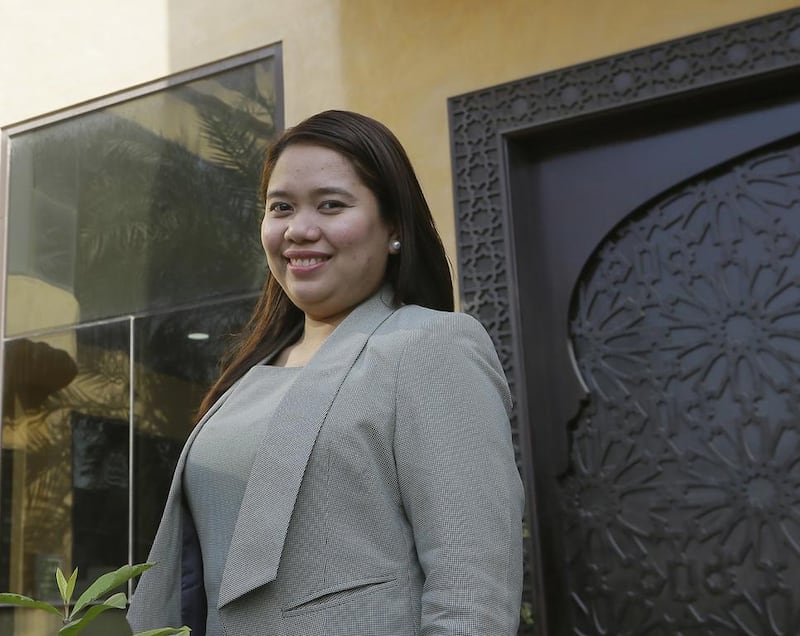DUBAI // Filipinos who find themselves struck down with homesickness, worried about their jobs, or suffering from debt-related stress can turn to their consulate for help and guidance.
More than 30 consulate officers and staff in Dubai have been trained in basic counselling skills to help compatriots cope with any problems they might have.
“Our training has interactive sessions and lots of role-playing,” said Dr Rommel Sergio, a counselling psychologist in Dubai who started a series of seminars and workshops at the consulate in March last year.
“They know specific approaches when addressing an emotional client, or one who needs guidance to make a personal or professional decision.”
Thirty to 50 Filipinos visit the consulate each week for a variety of reasons, said Paul Raymund Cortes, the consul-general in Dubai.
The majority of cases involve clarification of the labour law and how to deal with unfair work practices, concerns about adjusting to a new country and financial problems relating to non-payment of credit cards or bank loans.
“When they come for labour advice, they also talk about other issues and unleash their emotions such as feelings of resentment,” he said.
“For household workers who have fled their employers, they’ve suffered abuse, been overworked and harassed in some way.”
Others visit the consulate after losing their jobs or to complain that employers are illegally keeping their passports, Mr Cortes said.
Last year Lilibeth Prado, 40, a former cleaner in Dubai, sought help from the consulate to have her visa cancelled and retrieve her passport from her employer.
“The agency in Manila offered me a monthly salary of Dh1,500 but when I got here, the company only paid me Dh1,000,” she said. “They asked me to pay Dh2,600 for my Manila to Dubai ticket, which is unfair. The amount was deducted from my salary in instalments.”
Ms Prado, who hopes to find a new job soon, said she would not have been able to solve her problems without her consulate’s help.
“These are people in distress,” Mr Cortes said. “Although we are equipped with the know-how in terms of legal advice and procedures to undertake and how to resolve their issues, there’s also the more important need to make them feel that they are being taken care of.
“When we talk about the need to calm and assure a Filipino, there’s no way we can quantify exactly what they need. Counselling provides that human touch.”
Dr Sergio agreed: “A counsellor directs the client to take steps to resolve his issues by informing, explaining, interpreting, and advising,” he said. “The non-directive approach, on the other hand, is client-centred: being emphatic and allowing the client to express his or her feelings freely.”
When a counsellor assesses his or her own strengths, he or she can begin to positively help clients solve problems.
“The sessions taught me how to become a good counsellor,” Eleanor Balanquit, a cultural officer at the consulate. “I realised the importance of self-awareness and learning to accept capabilities, spending some ‘me time’ to reduce stress and restore energy, and thinking out of the box or from a new perspective.”
rruiz@thenational.ae






